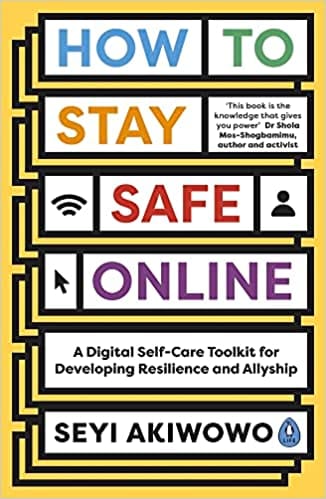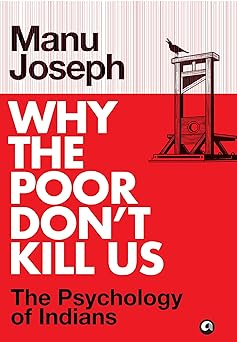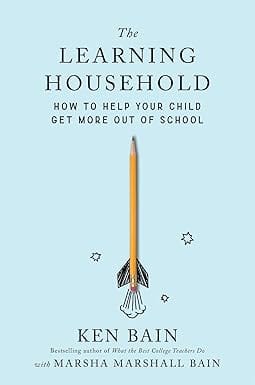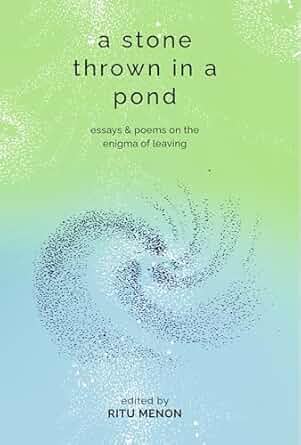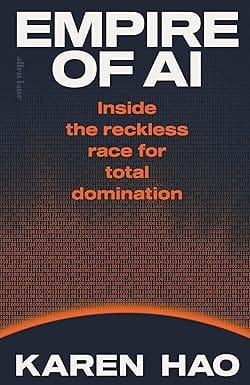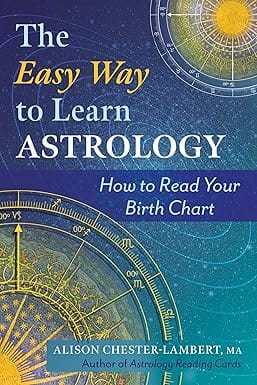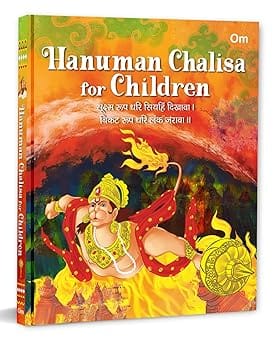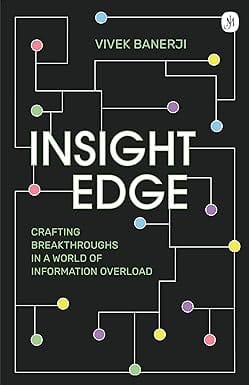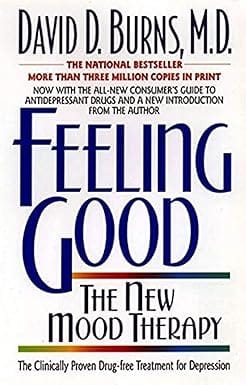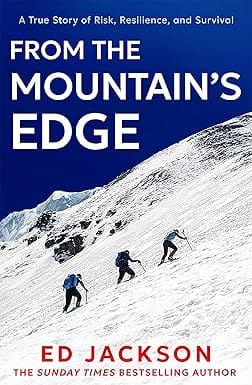-
Non-ficton
- Non-ficton
-
Contemporary Fiction
- Contemporary Fiction
-
Children
- Children
-
Comics & Graphic Novels
- Comics & Graphic Novels
-
Non-Fiction
- Non-Fiction
-
Fiction
- Fiction
'Seyi Akiwowo's work to make the online world safer, especially for Black women, is not only powerful, it's necessary' Nova Reid
'This helpful book is a crucial companion' Emma Gannon
'Seyi is one of the most important voices of our generation [...] I hope this book gets added to the national curriculum' Poppy Jamie
______________________________________
A powerful, comprehensive guide for digital self-care and allyship from one of our leading activists for online equality, Seyi Akiwowo.
Digital spaces are a positive force for change, connection and community, but left unregulated, they are not always safe. Globally, women are 27 times more likely than men to be harassed online. This is worse for Black women who are 84% more likely to face online abuse than white women. There has been a 71% rise in online disability abuse and 78% of LGBTQ+ people have experienced hate speech online.
How to Stay Safe Online will teach you how to spot, respond to and proactively defend yourself from online abuse and learn how to be a good ally to those experiencing it. An urgent and necessary digital self-care tool, this book will help you to support victims and empower friends, teachers, parents and willing allies to help make online spaces safer.
With a blend of practical advice, Seyi's personal experiences and interviews with Jameela Jamil, Hera Hussain, Gabby Jahanshahi-Edlin, Laura Bates, Yassmin Abdel-Magied, Luciana Berger, How to Stay Safe Online will:
* Provide practical tips on how to confidently navigate online spaces
* Equip you with a range of responses to online abuse and how to effectively report
* Teach you how to set boundaries and use the internet as a force for good
* Help you create your own digital self-care plan
* Provide information for employers, the media, parents, teachers, tech companies and government on their role in online safety and easy recommendations.
This will be the go-to guide to developing resilience, greater compassion for others and authentic allyship online.
______________________________________
'The need-to-know, must-have and barrier breaking book on fighting online abuse that everyone must have a copy of' Dr Shola Mos-Shogbamimu
'No one should be using the internet without having read this book' Alex Holder
'Accessible, empowering and potentially life-changing [...] everyone should read' Laura Bates
'A book written from the front line of life online - heartfelt, heart-breaking, practical, brilliant' Richard Curtis
Review
'Seyi Akiwowo's book is the need-to-know, must-have and barrier breaking book on fighting online abuse that everyone must have a copy of. This book is the knowledge that gives you power. It is conversational, current and relevant. Seyi talks you through it like she's right there with you - letting you know that you are not alone' -- Dr Shola Mos-Shogbamimu
'Seyi Akiwowo has been at the forefront of campaigning for more intentional social media usage throughout the years, and this book highlights the various ways one goes about doing that. It is the first book of its kind to highlight how we go about being safe online as well as providing the nuance required of minoritised and marginalised people's experience of the internet. This is essential reading for the times we live in' -- Kelechi Okafor Actor Director Podcaster Writer
'This book needed to be written and thankfully it finally has. Seyi's experience, and those of countless others, are full of valuable lessons for keeping us safe and empowered online' -- Kajal Odedra. Author of Do Something: Activism for Everyone
'I wish the Internet was a safer place, but until that day comes, this helpful book is a crucial companion. How wonderful to have Seyi on our side as we navigate through the stormy seas of the online world which she, sadly, knows all too well. The brilliant tools in this book will help you set better boundaries, protect your mental health, be a better digital citizen, and in general look after ourselves and each other' -- Emma Gannon, bestselling author of The Multi-Hyphen Method
'Seyi Akiwowo is a force of nature and this book is a godsend. She exposes the depth and urgency of the online abuse crisis, explores the hypocrisy and inefficacy of tech companies and government, and explains what readers can do to improve their online lives. Accessible, empowering and potentially life-changing, this is a book everyone should read' -- Laura Bates, feminist activist and bestselling author of Everyday Sexism
'Educational and entertaining. No one should be using the internet without having read this book' -- Alex Holder, journalist and bestselling author of Open Up: The Power of Talking About Money
'The digital world is evolving far faster than our brain can keep up. Seyi's powerful story of the impact of the online world provides important lessons for how to navigate this to keep our mind and ourselves healthy and safe' -- Dr Emma Hepburn, clinical psychologist and bestselling author of A Toolkit for Modern Life
'Such a relevant, thoughtful and practical book which has important lessons for us all whilst we learn to navigate this digital world' -- Natalie Evans, co-founder of Everyday Racism and co-author of The Mixed Race Experience
'Seyi's... vibrant and robust approach to how we navigate social media and use it more mindfully. This book [is] refreshing... empowering us with tools and providing guidance on how we can collectively make digital spaces safer and better for our communities' -- Ronke Lawal, PR and Comms consultant
'I loved this! Such a powerful personal story, and actually doable practical advice. Social media can be like the Wild West for women, so we need strategies and boundaries to protect ourselves. Seyi Akiwowo's book is an indispensable handbook for being online in a way that is safe, intentional and - importantly - fun!' -- Rosamund Dean, journalist and author of Mindful Drinking:
'The online world can be a scary place. Seyi's book will help us protect our online communities and the vulnerable people who need them. An urgent, powerful book'
-- Ian Wright, Footballer, Pundit'A book written from the front line of life online - heartfelt, heart-breaking, practical, brilliant'
-- Richard Curtis, Writer, Director, United Nations SDG Advocate'Online abuse is at an all-time high, with significant consequences. Read this book before you think you need it, it could save your life, or at least protect your sanity' -- Dr Soph
'A clever and timely toolkit, Seyi is brilliantly leading the charge in navigating vital conversations around online abuse and digital self-care. This book is both honest and practical, offering wisdom we should all put into practice right now!' -- Amika George
'Digital self care is critical to mental health and Seyi has written a thought provoking and highly practical guide to living a happier and safer life online and off. Millions of people have been victims of online abuse and I am so inspired and grateful to Seyi and her work for ensuring no one feels alone. Her mission is one that affects us all and this book is one of the most important topics of our generation' -- Poppy Jamie
About the Author
Excerpt. © Reprinted by permission. All rights reserved.
One of my biggest pet peeves is victim-blaming language. Perhaps this stems from unresolved trauma that I need to add to my growing list of ‘topics to take to therapy’. But phrases like ‘Don’t feed the trolls’ and ‘Just ignore it’ are irritating and so incredibly unhelpful.
On Christmas Eve in 2018, I was reporting an online stalker to the police shortly after publishing an article about Meghan Markle and – ironically – online abuse. Do you know what the officer then said to me? ‘Well, if you made your account private and didn’t write these things, this wouldn’t happen.’ Um, thanks?!
It saddens me, because it absolves the people in power of actually having to do anything. All the responsibility is piled on women and other vulnerable people to make themselves safe and avoid online abuse. Which is bollocks. I’d bet you my entire collection of Adele merchandise that even the most careful women minding their own business are still abused. Black, bold, proud women being themselves are forced to battle an onslaught of abuse just because of their profile pictures. New mothers posting about their experiences of motherhood on forums or even on their own social media accounts have been painfully attacked. Women can post on almost any topic – animal rights, climate change, healthcare – and abuse usually follows.
As a result, women are ‘advised’ not to talk about controversial topics. At best that’s a subjective and unhelpful piece of advice that means we are apparently supposed to avoid talking about bodily autonomy, period equity or the gender pay gap. Yet a man can discuss these things on social media and be adored and avoid the abusive terrain women have to traverse. At worst, this ‘advice’ is a heteronormative silencing tool around the topics of the liberation of marginalized communities and social justice. And any topic discussed as *insert minoritized identity* is seen as controversial by virtue of the person being from *insert minoritized community*. This isn’t right, but it is the reality and it’s why this book is needed.
It’s time we start countering this narrative that it’s a woman’s fault she’s experiencing online abuse. Or a trans person’s. Or a disabled person’s. It’s not the victim’s fault, and it’s also not their sole responsibility to make the necessary changes to eradicate the abuse. It’s everyone’s responsibility.
- Home
- Non-Fiction
- How To Stay Safe Online A Digital Self-care Toolkit For Developing Resilience And Allyship
How To Stay Safe Online A Digital Self-care Toolkit For Developing Resilience And Allyship
SIZE GUIDE
- ISBN: 9780241535219
- Author: Seyi Akiwowo
- Publisher: Penguin Life
- Pages: 256
- Format: Paperback
Book Description
'Seyi Akiwowo's work to make the online world safer, especially for Black women, is not only powerful, it's necessary' Nova Reid
'This helpful book is a crucial companion' Emma Gannon
'Seyi is one of the most important voices of our generation [...] I hope this book gets added to the national curriculum' Poppy Jamie
______________________________________
A powerful, comprehensive guide for digital self-care and allyship from one of our leading activists for online equality, Seyi Akiwowo.
Digital spaces are a positive force for change, connection and community, but left unregulated, they are not always safe. Globally, women are 27 times more likely than men to be harassed online. This is worse for Black women who are 84% more likely to face online abuse than white women. There has been a 71% rise in online disability abuse and 78% of LGBTQ+ people have experienced hate speech online.
How to Stay Safe Online will teach you how to spot, respond to and proactively defend yourself from online abuse and learn how to be a good ally to those experiencing it. An urgent and necessary digital self-care tool, this book will help you to support victims and empower friends, teachers, parents and willing allies to help make online spaces safer.
With a blend of practical advice, Seyi's personal experiences and interviews with Jameela Jamil, Hera Hussain, Gabby Jahanshahi-Edlin, Laura Bates, Yassmin Abdel-Magied, Luciana Berger, How to Stay Safe Online will:
* Provide practical tips on how to confidently navigate online spaces
* Equip you with a range of responses to online abuse and how to effectively report
* Teach you how to set boundaries and use the internet as a force for good
* Help you create your own digital self-care plan
* Provide information for employers, the media, parents, teachers, tech companies and government on their role in online safety and easy recommendations.
This will be the go-to guide to developing resilience, greater compassion for others and authentic allyship online.
______________________________________
'The need-to-know, must-have and barrier breaking book on fighting online abuse that everyone must have a copy of' Dr Shola Mos-Shogbamimu
'No one should be using the internet without having read this book' Alex Holder
'Accessible, empowering and potentially life-changing [...] everyone should read' Laura Bates
'A book written from the front line of life online - heartfelt, heart-breaking, practical, brilliant' Richard Curtis
Review
'Seyi Akiwowo's book is the need-to-know, must-have and barrier breaking book on fighting online abuse that everyone must have a copy of. This book is the knowledge that gives you power. It is conversational, current and relevant. Seyi talks you through it like she's right there with you - letting you know that you are not alone' -- Dr Shola Mos-Shogbamimu
'Seyi Akiwowo has been at the forefront of campaigning for more intentional social media usage throughout the years, and this book highlights the various ways one goes about doing that. It is the first book of its kind to highlight how we go about being safe online as well as providing the nuance required of minoritised and marginalised people's experience of the internet. This is essential reading for the times we live in' -- Kelechi Okafor Actor Director Podcaster Writer
'This book needed to be written and thankfully it finally has. Seyi's experience, and those of countless others, are full of valuable lessons for keeping us safe and empowered online' -- Kajal Odedra. Author of Do Something: Activism for Everyone
'I wish the Internet was a safer place, but until that day comes, this helpful book is a crucial companion. How wonderful to have Seyi on our side as we navigate through the stormy seas of the online world which she, sadly, knows all too well. The brilliant tools in this book will help you set better boundaries, protect your mental health, be a better digital citizen, and in general look after ourselves and each other' -- Emma Gannon, bestselling author of The Multi-Hyphen Method
'Seyi Akiwowo is a force of nature and this book is a godsend. She exposes the depth and urgency of the online abuse crisis, explores the hypocrisy and inefficacy of tech companies and government, and explains what readers can do to improve their online lives. Accessible, empowering and potentially life-changing, this is a book everyone should read' -- Laura Bates, feminist activist and bestselling author of Everyday Sexism
'Educational and entertaining. No one should be using the internet without having read this book' -- Alex Holder, journalist and bestselling author of Open Up: The Power of Talking About Money
'The digital world is evolving far faster than our brain can keep up. Seyi's powerful story of the impact of the online world provides important lessons for how to navigate this to keep our mind and ourselves healthy and safe' -- Dr Emma Hepburn, clinical psychologist and bestselling author of A Toolkit for Modern Life
'Such a relevant, thoughtful and practical book which has important lessons for us all whilst we learn to navigate this digital world' -- Natalie Evans, co-founder of Everyday Racism and co-author of The Mixed Race Experience
'Seyi's... vibrant and robust approach to how we navigate social media and use it more mindfully. This book [is] refreshing... empowering us with tools and providing guidance on how we can collectively make digital spaces safer and better for our communities' -- Ronke Lawal, PR and Comms consultant
'I loved this! Such a powerful personal story, and actually doable practical advice. Social media can be like the Wild West for women, so we need strategies and boundaries to protect ourselves. Seyi Akiwowo's book is an indispensable handbook for being online in a way that is safe, intentional and - importantly - fun!' -- Rosamund Dean, journalist and author of Mindful Drinking:
'The online world can be a scary place. Seyi's book will help us protect our online communities and the vulnerable people who need them. An urgent, powerful book'
-- Ian Wright, Footballer, Pundit'A book written from the front line of life online - heartfelt, heart-breaking, practical, brilliant'
-- Richard Curtis, Writer, Director, United Nations SDG Advocate'Online abuse is at an all-time high, with significant consequences. Read this book before you think you need it, it could save your life, or at least protect your sanity' -- Dr Soph
'A clever and timely toolkit, Seyi is brilliantly leading the charge in navigating vital conversations around online abuse and digital self-care. This book is both honest and practical, offering wisdom we should all put into practice right now!' -- Amika George
'Digital self care is critical to mental health and Seyi has written a thought provoking and highly practical guide to living a happier and safer life online and off. Millions of people have been victims of online abuse and I am so inspired and grateful to Seyi and her work for ensuring no one feels alone. Her mission is one that affects us all and this book is one of the most important topics of our generation' -- Poppy Jamie
About the Author
Excerpt. © Reprinted by permission. All rights reserved.
One of my biggest pet peeves is victim-blaming language. Perhaps this stems from unresolved trauma that I need to add to my growing list of ‘topics to take to therapy’. But phrases like ‘Don’t feed the trolls’ and ‘Just ignore it’ are irritating and so incredibly unhelpful.
On Christmas Eve in 2018, I was reporting an online stalker to the police shortly after publishing an article about Meghan Markle and – ironically – online abuse. Do you know what the officer then said to me? ‘Well, if you made your account private and didn’t write these things, this wouldn’t happen.’ Um, thanks?!
It saddens me, because it absolves the people in power of actually having to do anything. All the responsibility is piled on women and other vulnerable people to make themselves safe and avoid online abuse. Which is bollocks. I’d bet you my entire collection of Adele merchandise that even the most careful women minding their own business are still abused. Black, bold, proud women being themselves are forced to battle an onslaught of abuse just because of their profile pictures. New mothers posting about their experiences of motherhood on forums or even on their own social media accounts have been painfully attacked. Women can post on almost any topic – animal rights, climate change, healthcare – and abuse usually follows.
As a result, women are ‘advised’ not to talk about controversial topics. At best that’s a subjective and unhelpful piece of advice that means we are apparently supposed to avoid talking about bodily autonomy, period equity or the gender pay gap. Yet a man can discuss these things on social media and be adored and avoid the abusive terrain women have to traverse. At worst, this ‘advice’ is a heteronormative silencing tool around the topics of the liberation of marginalized communities and social justice. And any topic discussed as *insert minoritized identity* is seen as controversial by virtue of the person being from *insert minoritized community*. This isn’t right, but it is the reality and it’s why this book is needed.
It’s time we start countering this narrative that it’s a woman’s fault she’s experiencing online abuse. Or a trans person’s. Or a disabled person’s. It’s not the victim’s fault, and it’s also not their sole responsibility to make the necessary changes to eradicate the abuse. It’s everyone’s responsibility.
Related Books
User reviews
NEWSLETTER
Subscribe to get Email Updates!
Thanks for subscribing.
Your response has been recorded.

India's Iconic & Independent Book Store offering a vast selection of books across a variety of genres Since 1978.
"We Believe In The Power of Books" Our mission is to make books accessible to everyone, and to cultivate a culture of reading and learning. We strive to provide a wide range of books, from classic literature, sci-fi and fantasy, to graphic novels, biographies and self-help books, so that everyone can find something to read.
Whether you’re looking for your next great read, a gift for someone special, or just browsing, Midland is here to make your book-buying experience easy and enjoyable.
We are shipping pan India and across the world.
For Bulk Order / Corporate Gifting
 +91 9818282497 |
+91 9818282497 |  [email protected]
[email protected]
Click To Know More
INFORMATION
POLICIES
ACCOUNT
QUICK LINKS
ADDRESS
Shop No.20, Aurobindo Palace Market, Near Church, New Delhi

